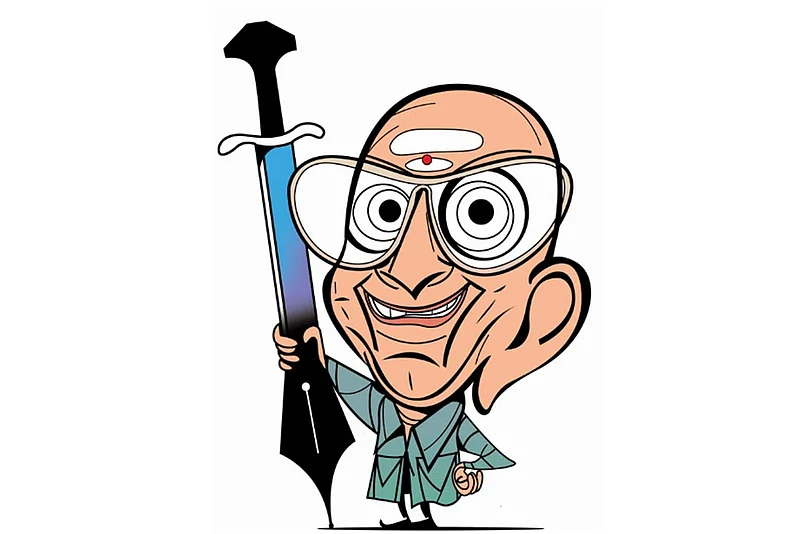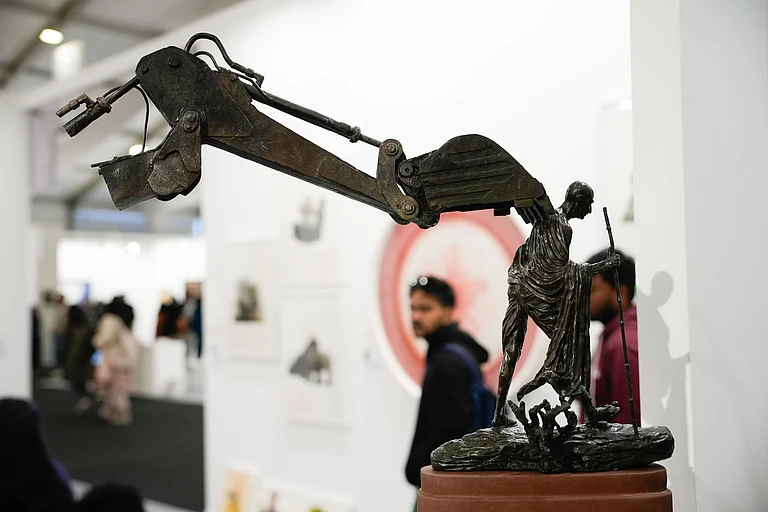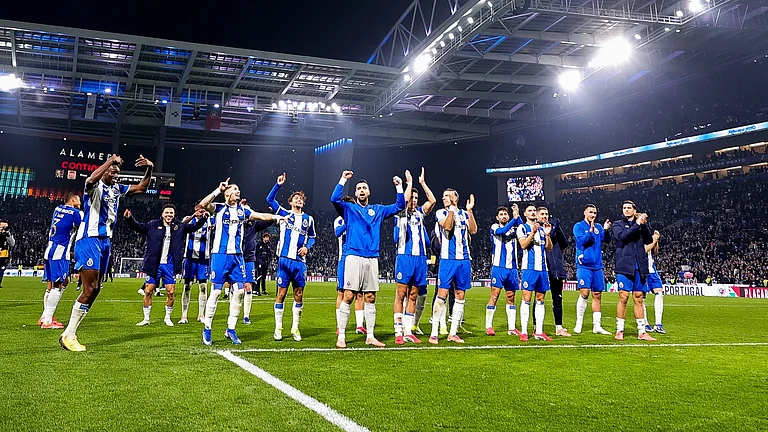I had long known Cho Ramaswamy’s wry sense of humour, but the one occasion it best rolled out before me was when I was grief-struck. My political party had just split—in 1964—and I had stayed with the CPI. I was travelling by train to attend a conference in my native Tamil Nadu. Cho came to me. With big, round eyes and an impish smile that seemed to add lustre to his bald head, my good friend shook hands with me and sat by my side. “I am going to invite you to another gala meeting which I intend to organise for your great leaders of the CPI and the Marxist party—for having done one good thing for India,” he said.
I was listening to Cho intently, quite clueless. He continued his narration with his characteristic smirk, going back to how even the “great, cunning Britishers” could not divide and destroy my party. “Your party survived a ban. Even after Independence, your party suffered serious attacks; yet you survived,” he intoned. “But now your great leaders have done what others could not achieve. So, people like me need to waste no more time in writing or speaking against you. Now A will expose B, and B will give it back in the same coin. All we need to do is to enjoy and laugh.”
I got the drift, and realised that silence—not counter-attack—was the better way to respond.
The next week’s Thuglak carried a write-up that read thus: “Though I hate the Communist Party ideologically, ironically, I am compelled to pay encomiums on several leaders of the Communist movement. Many good people are there in that bad party,” wrote editor Cho in his weekly magazine that enjoyed a very large readership. “Yet, I wish the Communist Party to remain on the political stage to play the opposition party role for the success of democracy in India.”
For Cho, this capacity for sarcasm was a method he applied universally. He was an uncompromising critic of Indira Gandhi, and had vehement arguments with the many good friends he had in the Congress. His long association with J. Jayalalitha started in the 1960s, during their film industry days. It’s true that he called on her frequently, but to say he served as her counsel would be totally baseless. Cho might have sometimes carried her message to other party leaders. The late chief minister was highly individualistic; she will never allow to be advised by others—be it even her mentor M.G. Ramachandran. Cho, knowing this, kept himself at a safe distance.
If Cho was witty, he was also endowed with a penchant for histrionics. That helped him not just in acting; it even lent him a unique tone and tenor in speeches that none could imitate. Even those who reacted sharply to his ideas did not exactly hate him. This was because his sharp critiques were delivered without wounding the feelings of others. Even the victim of his acerbic tongue and nib would listen to and read his words with interest—perhaps even smile at the end of it.
Cho had an intense passion for theatre. The first play he wrote and acted in became so popular that it was staged for days together. It was steeped in satire, pouring scorn on the degeneration of public life after the Independence movement. It openly ridiculed the Dravidian movement as unpatriotic, undemocratic and opportunistic, adding that its basic purpose in politics was to capture power and make money. That was one line of criticism he continued to harp on till his last days. Yet, all the reputed top leaders of the DMK and AIADMK were his partners in the film world. Personal chemistry overrode politics: Cho was a good friend of both Karunanidhi and MGR.
Born into a Brahmin family, Cho was a firm supporter of the BJP. But he never joined any party. But his rapier-like words and witticisms were always at hand to defend the saffron outfit. Perhaps he inherited his honesty: his father was a qualified advocate who abruptly gave up his practice one day, on learning that he was in reality arguing for a murderer. The man, then, ventured into business. Cho, who had good schooling and was known as an intelligent student, too wanted to become an advocate. But the lure of the stage struck him. It was a life lived partly as theatre, gregarious, witty and always watchable.
(The writer is a Communist leader and former Lok Sabha member.)





















